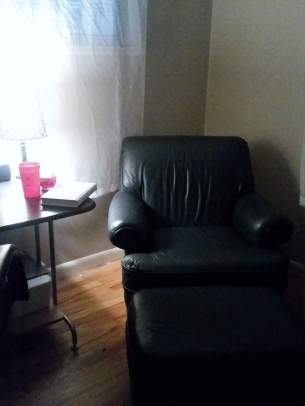When I published Not My Normal Self, I had only told four people I was managing PPD. I’m fairly certain I wrote, erased, and rewrote the post at least a dozen times. After all, if you Google “postpartum depression”, half of what you find is about stigma anyway.
I was scared of how people would react. Would they think I’m weak? How would I be judged? Would my career be impacted? Does anyone even care? My very-public announcement of mental illness elicited four types of responses.
“I Would Have Never Known”
This was by far the most common response I received, especially at work. So many people were shocked to learn I had been struggling for months. When people said this to me, they said it as more of a compliment. I’ve always found that strange. Like it was supposed to be some sort of compliment I didn’t let my illness affect my work, friendships, family, etc. This is misguided, but I can understand it. Parenthood dramatically changes an individual- how is someone to know if there is actually a problem or if I am just adjusting to parenthood? Two words: get nosy.
Postpartum depression affected every aspect of my life. Every waking moment I struggled to focus. While at work, I threw myself into learning my new job, but I also had this nagging fear I would have a panic attack in the middle of a meeting. At home, I didn’t even recognize the person I had become. I felt like my own house was closing in on me and there was no way out. With friends, well, I was a new mom so I hardly interacted with them. Recently, B and I were looking at photos from when M was a baby. He paused on one particular photo and commented that it didn’t look like me, that he could see in my eyes something wasn’t right.

Aside from the intent of a compliment, I think others who said “I would have never known” meant it as a defense for why they didn’t help. It was as if they wanted to tell me that had they known, they would have been there for me. To each one of you, I know this. I chose not to disclose for many reasons, and I don’t doubt that if anyone in my life had known, they would have offered support. I’m fortunate to have a fantastic support network.
Discomfort Talking to Me About It
Some folks didn’t want to acknowledge it. Others kind of tip-toed around me, acting shifty and not making eye contact. Perhaps people were afraid I would burst into tears or have a “breakdown”? I’m not sure exactly what this was about, but there were some people who very conspicuously avoided the issue. Here’s what I think about this type of response to someone with mental illness: would you treat me this way if I needed major surgery?
I like to think of mental illness as any other illness. For example, if someone has a heart attack they go to the hospital, receive treatment, have some sort of medication and rehab, and hopefully recover. Resource shortages aside, the same thing for someone who has a mental health emergency. They go to the hospital, receive treatment, have some sort or medication and rehab, and hopefully recover. The same analogy holds true for chronic conditions like Crohn’s Disease and chronic depression; they don’t go away on their own and have to be monitored by a health care professional. If you wouldn’t feel uncomfortable asking someone about their health condition, why would you feel uncomfortable asking about my depression?
Confessions From Other Moms
At least three other women told me they’d had postpartum depression. All of these women are folks I’ve known for years and either are friends or close colleagues. Why hadn’t I previously known? It all comes back to stigma.
This was truly the silver lining of postpartum depression. I heard so many amazing stories from women who had been through something similar. This community and sense of understanding was critical to my recovery, as well as others.
Consultation Requests
On a similar note, many expectant or new moms now ask me about PPD. Some have even re-read my blog! Here are some of the questions I am asked:
- How did I know?
- What were my symptoms?
- What was my treatment plan?
- What’s the difference between “baby blues” and PPD?
- Did I take anti-depressants?
- What was therapy like?
I welcome any and all questions and will be honest about my experience and my limitations. I am not a mental health professional. However, by sharing my own experience with others, I can normalize it for others and help them look out for warning signs. Even strangers or folks in the blogging community.
Conclusion
I’m so grateful for all the support I have received: my husband, friends, family, colleagues, therapist, and psychiatrist. My network was just as important to my recovery as the Sertraline and therapy. Looking back, I’m also grateful I chose to be open about my struggle with PPD. Ending the stigma is critical for early detection and treatment. Through being open about my own experience, others have sought professional help and support.
If you know anyone who may be struggling with postpartum depression, or any other mental illness, please talk to them. Take time to listen, empathize, and normalize. Encourage folks to get help and offer to support them however necessary. After all, mental illness is illness; how would you treat someone with any other health condition?
Resources
National Suicide Hotline – 1-800-273-8255
Postpartum Support International – 1-800-944-4773
Anxiety and Depression Association of America




